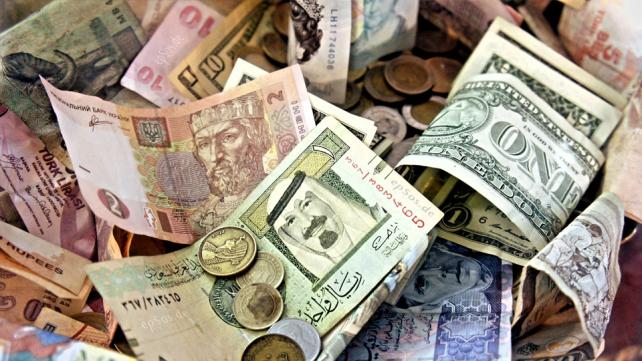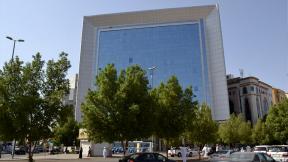
Reading 33 papers in the context of methodology of Islamic Economics can be an inspiring experience. It can also be bewildering. This is especially so if the reader is not sure whether he is looking for a methodology in there or aspires to evaluate the material on the basis of one in his own mind.
Being in the unenviable position of one who came to these learned contributions without one in his own mind, at least not in the conscious part of it, and then found a variety of approaches and diversity of `visions' in those papers, I have little choice. I will present what I found in a manner which might lead me to a synoptic, acceptable approach based on a vision that combines the desirable with the possible.
Before I proceed to do so I note that Shariah scholars, especially Faqeehs, are not among the authors I read. This undoubtedly makes may task much easier! But it also leaves it very incomplete. We have to break the language barrier to make our "Agenda for Change" more credible.
In what follows I juxtapose four or five polar attitudes, occasionally, but not always, pointing fingures to help in comprehension rather than offer critique or applause. (All pages refer to respective mimeographs listed in the appendix alphabetically arranged author-wise). Comments on these polar tendencies are followed by some `guidelines' for whose wisdom or folly I bear sole responsibility without any prejudice to 33 wise men and one wise woman coauthor with a man (yeilding a participation rate of 1.5% for the better half) whom I had the privilege of reading.
The two most prominent tensions running through some of these contributions are between:
- Public management, largely through state intervention Versus privatisation and reliance on individual initiative and enterprise with reduced regulation.
- Meeting modern challenges through fresh ijtihad largely based on first principles of Islam derived from Qur'an and Sunnah Versus searching for solutions in fiqh and seeking guidance and fatwa from ulema.
The two are not entirely unrelated as those who feel bound to fiqh and ulema generally fall back on the state to "implement the Shariah" having little confidence in individuals themselves. The champion of innovation in a global economy can hardly do without the leverage afforded by maqasid al Shariah.
While we wait like M.A. Choudhury himself, for the emergence of his grand system based on `Quranic Socio-Scientific epistemology' (pages 8 - 17, 25 and 31) (an stance related to ii: above) we can hardly from his prognosis that belongs to i: under the inexorable impact of this change in a globalizing, privatizing and power-sharing world of the future the present autocratic world system of the Muslim countries will lose out" (p. 43). We find Sayyid Tahir (Industrial Relations, pp. 17 ? 24), seeking answers to questions raised by pensions and provident funds in a fiqh developed when life long hiring of free people was unknown, where as Asghar Ali Engineer puts aside fiqh as history in the opening paragraph of his paper (p. 24). Also contrast Sayyid Tahir (Riba free Alternatives, p. 18) and Iraj Toutounchian (p. 24) on central bank working under Treasury to Heyder Pourian (p. 13) on independence of central bank. Tahir and Toutounchian are relying o! n deduction whereas Pourian has learnt from experience - which brings us to our next point.
Idealism and realism. Those with eyes fixed on the golden age of Islamic history (remember Syedna Omer Farooq) continue Calling upon good governments to realise the Islamic objectives (Sayyed Tahir, M.L.A Bashar). They also talk about economic integration of the Ummah [M.A. Miyan: p. 10 and A.H.M. Sadeq, p. 28] and possible replication of Khilafah - one ruler for all muslims [A.H.M. Sadeq, p. 30].
Those with ears on the ground and eyes open to what they actually see are the ones calling for less government and privatisation. (S.V. Reza; Monzer Kahf p. 30; M.A. Zakaullah p. 38). So, this issue too links up with the above two. But it deserves separate recognition for more reasons than already noted. Some of our contributors are so strongly idealistic that they tend to see into reality here and now reflections of or pointers to the ideal which to the earthly eyes of this writer are just not there. Iraj Toutounchian sees in Iran "Islamic values prevalent in almost all country side" (p. 17). For him banks do not create money (p. 24) and (despite the obvious point that in order to serve as medium of exchange money has to be a store of value between sale - purchase) `sees` money as void of store of value function' (p. 17).
The tendency to see what we wish to see seems to be wide spread. Mushtaqur Rahman's paper on Muslim situation in the United States falls in the same category.
Those keen to improve the lot of the poor, rid the streets of crime and obscenity and usher in a good and just society have always faced the vexed question: how far can you rely on morality and civic sense of the people? and the complementary one, how far authority and coercion ensure what morality and civility failed to deliver. There are no clear answers. There is not much to choose either. Throughout history those who, no doubt in their keenness to attain perfection, left the golden mean of a judicious (pragmatic?) blending of the two (no eternal recipes) for utopian extremes floundered, doing great damage to society.
That some of our contributors got caught into this wedge was not surprising. But for some of us to try to build Islamic political economy (hence Islamic economic agenda) on the assumption of ideal Islamic behaviour on part of every economic agent is too much.
Is there a psychological relationship between this tendency and that noted above: the tendency to see much more good in reality than is actually there. What is the impact on policy-decisions when the two combine? Does this yield some testable hypotheses for the study of some contemporary societies which are Islamising their economies?
Lastly, there is the bugbear of the West. A west supposedly out to keep Muslim countries under developed (Savas Safak Berkctin, pp. 30-33) and prevent Islam from coming to power. For some, if not most of our writers facing this threat seems to be the overriding priority. From a call to reject American led West's new world order (Mohammad Anwar; Savas Safak Berkctin) to a rejection of western economics (Amino S. Mikilo, pp. 11-12; But there are saner advices like those of Syed Farid Alatas, especially p. 11) this attitude is pervasive.
Indirectly reinforced (though he never intended to do so) by the asides of eminent scholars like Professor Ali Mazrui, the near universality of a "hostile west" perception calls for some closer analysis. What is West? Starting from individuals, do they care about maintaining, if possible raising, their standards of living or they would rather devote their energies to keeping us down. What about the dawning awareness that increasing prosperity of the East expands the market for the west (and vice versa). And why should the ordinary western individual care about denying power to Islam in its own lands.? Some of us may still see in him the crusader (who forsake his economics to promote his religion). This may no longer be true. Then there is the media image of Islam in power and what it might mean for the western individuals (remember the hostages in Tehran!). But who said it can never change.
Let us now go beyond the individual in the west. What do we see: governments that come and go, alliances that change. Nothing permanent. All acquired traits, no innate character. I may be wrong. But hostile west syndrome does not seem to be doing any good to its adherents (victims?). It has not resultin any coheren"agenda", neither for policy nor for research. It can not. Negative perceptions do not take you far on the road of positive achievements.
While I am for heeding the warning of Refidah Abdul Kader and Mohamed Ariff (p. 13) and surely one has to take notice of Ali Mazrui's list of west's "seven biases" (p. 26), I wish to endorse Paul Y. Hammond (p.15) that something can be done. Also there are new possibilities indicated by Suroosh Irfani (p. 6).
Besides Rafidah and Mohamed Ariff several other writers have focussed on Malaysia (M.A. Zakaullah; Ataul Haq Pramanik, M.A. Choudhury and Syed Farid Alatas). These deserve close attention. Is Choudhury right in posing the enigma facing the Ummah (p. 21)? Is his lament about lack of ethically oriented policy addressed primarily to individuals or to government? How is a government supposed to ensure a balanced development between ethical values and economic growth' (p. 21) in an open economy? Ataul Haq Pramanic's study is helpful. But then he throws the whole thing into confusion by asserting that al Arqam "quite successfully demonstrated the success of a development strategy based on self reliance." (p. 17) What strategy? Whose self reliance?
Can these tensions be eased and the gaps bridged? Can our intellectuals as sampled in the 34 contributors to this International Workshop on Islamic Political Economy in Capitalist Globalization: An Agenda for change, close their ranks and end up with a consensus methodology?
On this score I am optimistic. Even though I have dared to launch "guidelines" as required by the organisers of the Workshop, I do not expect every one to accept each one of them. But I daresay they reflect the way the winds are blowing. The more you are opposed to them the more energy you will have to spend merely to hold your ground.
I do not think Islam's cause will be promoted by confronting the west, opposing globalisation, preventing consumerism by coercion, rejecting modern economics, building pure models on the assumption of ideal Islamic behaviour and exemplary leaders / rulers. Islam's destiny will be made through the currently unfolding reality by those who choose to be in the thick of it while conscious of their faith and aware of their objectives. These should have the capability to win friends and influence people from amongst the masses of humanity currently perceived to be indifferent or even hostile.
Guidelines for required short and long term policy measures for transformation of the present structures in various countries to conform to the norms of Islamic structures
- Observe reality as it is, do not let ideals lead you into optical illusion of seeing what is not there. Also, do not let yesterday's observation become the last word regarding tomorrow's possibilities.
- Make reality your starting point in your march towards ideal, do not make on it demands it can hardly fulfil here and now [e.g. change leaders (M. Anwar), all muslim countries cooperate (M.A. Miyan)]. Also Mapping out the entire landscape is not necessary for the journey. You learn by doing. The important thing is to be clear about what you want to do.
- Do not expect from moral orientation more than it has normally delivered in the past ------, go to history. Lessons of history are not only in success stories, the golden interludes. Failures teach you how to avoid them.
- Focus on the individual: motivate him spritually, enable him skillwise, enrich him resource-wise, empower him by providing opportunity. In the new global economy such individuals create their own jobs and improve their environment. They make whatever they carry - culture religion, dress, food habits tolerable, some times even loveable, to others.
- Statism has failed. Accept this. Excepting the bare minimum of power ordained by Qur'an and Sunnah, reduce government and leave it to individuals through Shura - democratic process to assign to it what they think fit, when they choose, where they like. Also it is not wise to make a change of government in Muslim countries the precondition to an "agenda for change". If you can not change it, ignore it.
- Global confrontation is counter productive. Do not initiate it. Even if the "West" imposes, avoid it. In the global economy of the future there is no East no West. It is trade, interdependence, and the mixed metorpolis ----- a metropolis teeming with people from four corners of the world, professing all kinds of faith, treasuring diverse heritages, etc.
- The craving for a de novo discipline of Islamic economics is ill conceived. No such thing is possible. The key to Islamic economics lies in positioning the Islamic vision in place of the Anglo Saxon economic vision. But the Islamic economic vision has to be universal and contemporary not chauvinistic and medieval. As we move in that direction we may be pleased to discover we have good company from amongst modern economists in the West and East. The search for a more humane political economy is now universal. The challenge is, who leads the way.
- And, lastly, be practical. Apply what you have, now. Do not wait for refinement and perfection. Apply where you can, do not wait for power.
APPENDIX
List of papers studied by this writer arranged alphabetically according to first name of the author
1. Abdel Hameed M. Basheer, Measuring the Performance of Islamic Banks: The Case of Sudan.
2. Abdul Raquib, Grameen Bank - A Unique Model for Poverty Alleviation of Muslims Nations
3. Abul Hasan M. Sadeq, The Political Economy of Cooperation Among Muslim Countries: Political Efforts and Future Directions.
4. Ali A. Mazrui Islam and Islamophobia: Conflicting Images in a Eurocentric World.
5. Amino S. Mikailu, Direct Foreign Investment and Islamic Political Economy: Analysis and Implications of the Performance of Multinational Corporations in Nigeria.
6. Asghar Ali Engineer, Political Economy of Islamic State and its Relevance.
7. Ataul Haq Pramanik, Development Strategies and Achievements with Focus on the Sustainability Within The Framework of Islamic Movement and Political Economy of Malaysia.
8. Heydar Pourian, Islamic Banking and Economic Development in the Islamic Republic of Iran.
9. Iraj Toutounchian, Resource Mobilization for Partial Government Expenditures Through Islamic Modes of Contract. The Case of Iran.
10. Jomo K. Sundram, Riba, Interest, Usury or Surplus: Alternative Meanings and there Implications.
11. J.R. Presley, Attitudes to Islamic Finance: A Survey of Some Empirical Evidence.
12 M. Alimullah Miyan, Industrialisation in Muslim World: Experience of Bangladesh.
13. M.L.A. Bashar, Islamic State, Industrial Priorities and Surplus Management.
14. Masudul Alam Choudhury, Theory and Practice of Islamic Political Economy.
15. Monzer Kahf, The Economic Program of a few Islamic Parties in the Arab Countries.
16. Mohammad Anwar, Underdevelopment Syndrome in Muslim Countries.
17. Muhammad Arif, Development of Capital Markets in Muslim Countries and Their Impact on and Linkages with World Capital Markets.
18. Muhammad Arif Zakaullah, The Role of Conflict Resolution Mechanism in Economic Development: Some Lessons from the Malaysian Miracle' and Pakistan's Perils.
19. Mushtaqur Rahman, Islamic Movement and Social Economic Development in the United States.
20. Paul Y. Hammond, Islamic Movements in Western Europe and America: Looking for Effects on Foreign Relations.
21. Rodney Wilson, Managerial Economics of Marginal Islamic Institutions.
22. Radia Abdul Kader and Mohammed Ariff, Political Economy of Islamic Finance: The Malaysian Experience.
23. Salim Rashid, Do We Need a Theory of Economic Growth?
24. Savas Safak Berkctin, Political Implications of Development Rhetoric and Assistance in the New World Order: Lessons and Perspectives for the Muslim Countries.
25. Syed Hussain Mirjalili The Foundations of Development Policies in View of Islamic Political Economy.
26. Sayyid Taher Industrial Relations in Islam.
27. Sayyid Tahir, RibaFree Alternatives for a ModEconomy.
28. Seyyed Vali Reza Nasr, Social Base of Islamic Activist Mov.
29. Sule Ahmed, The Role of the Nigerian Islamic Movements on the Political Economy of the Country.
30. Suroosh Irfani Eco-Politics and Islamic Activism.
31. Syed Farid Alatas, Islam and Countermodernism: Towards Alternative Development.
32. Tahir Amin, Theory and Practice of Islamic Approach Torward Ethnicity. A Case Study of Pakistan.
33. Volker Nienhaus Potentials of Islamic Banking and Finance for the Promotion of Economic Development: Local and International Mobilization of Funds and Utilization for Rural and Industrial Development.
© 2000 Muhammad Nejatullah Siddiqi
Mohammad Nejatullah Siddiqi is a Professor at the Centre for Research in Islamic Economics, King Abdulaziz University, Jeddah, Saudi Arabia. mnsiddiqi@hotmail.com.
Presented on DECEMBER 12 - 14, 1994
SCHOOL OF SOCIAL SCIENCE, UNIVERSITY SAINS MALAYSIA
PULAU PINANG, MALAYSIA
Photo Attribution: http://commons.wikimedia.org/wiki/File:Exchange_Money_Conversion_to_Foreign_Currency.jpg






Add new comment